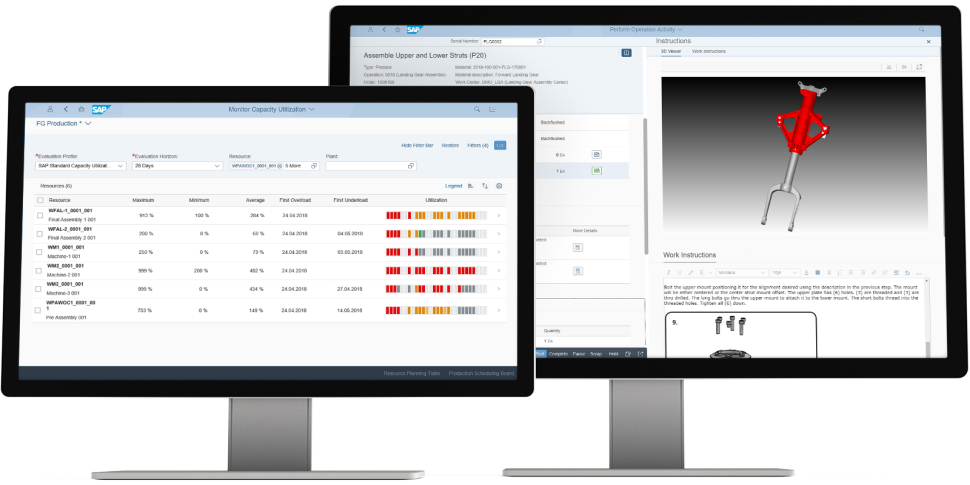What is SAP S/4HANA?

On-Premise
Cloud

Key Benefits of SAP S/4HANA
SAP S/4HANA brings simplicity, performance, innovation, usability, and flexibility to data-driven business management.
SAP ERP central component is on-premise enterprise resource planning which integrates digital information data from one area of business to other areas in real-time. For example, sales and purchasing data can be seen side-by-side with business planning models in SAP BPC (Business Planning and Consolidation), rather than through the manual transfer of data between disparate programs.
Additionally, SAP S/4HANA reduces data footprints by eliminating data storage redundancies — essential for Big Data management (Studies predict an estimated 75 billion Internet-of-Things (IoT) devices in the world by 2025.)
Finally, SAP S/4HANA flexible design invites future software to be integrated directly with the ERP system as quickly as new analytical models can be created.
The clearest example of SAP S/4HANA simplicity is its extensive, specifically targeted, and easy-to-use ERP modules.
Commonly Used SAP ERP Modules Included in SAP S/4HANA
SAP S/4 HANA modules are individual components of S/4 HANA implementation and each module specifies the functionality for business purposes.
• Plant Maintenance (PM)
• Human Capital Management (HCM)
• Production Planning (PP)
• Project Systems (PS)
• Finance (FI)
• Controlling (CO)
• Sales and Distribution (SD)
• Investment Management (IM)
• Customer Relationship Management (CRM)
• Supply Chain Management (SCM)
• Customer Service (CS)
• Materials Management (MM)
• Enterprise Performance Management (EPM)
• Human Resources
Of particular note: SAP improved Finance, previously known as Simple Finance, has found widespread use among major businesses because of its real-time integration with both the HANA database and neighboring SAP software.

Which Industries Benefit from SAP S/4HANA?
Businesses from various industries can benefit from a more efficient ERP process because SAP S/4HANA supports Lines of Business (LoB) processes common to every company.
SAP S/4HANA supported industries include:
• Manufacturing
• Consumer and industrial product sales
• Engineering and Construction
• Oil and gas
• Insurance
• Banking
• Financial Services
• Transportation and Logistics Firms
• Public services and Utilities
• Retail
The list goes on, and it is to the benefit of a skilled SAP S/4HANA user that they are not restricted to a single industry or service. In fact, the more module training that a professional can obtain, the wider their career options become within a company, industry, and even across multiple industries.
SAP Business One is a business management solution
designed for small and medium-sized enterprises
